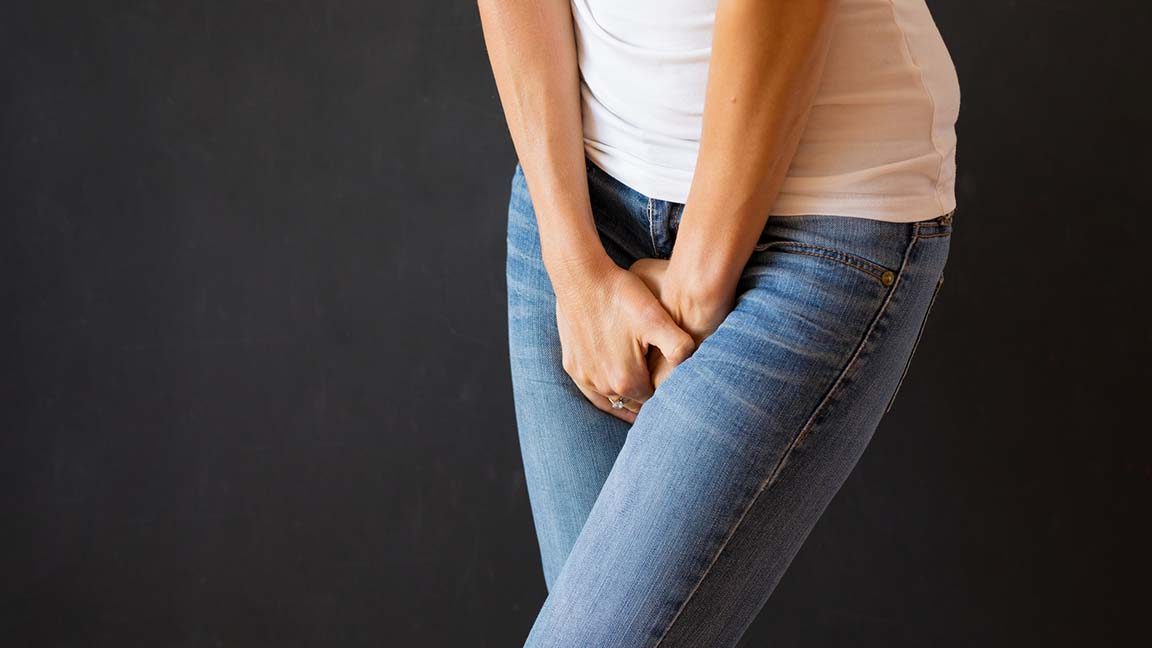Some women joke about the risk of peeing when they giggle, but for women who struggle with urinary incontinence, the condition is no laughing matter.
Having a leaky bladder is extremely common in women, although many women are reluctant to seek help for the condition. It can become serious enough that women withdraw from activities and plan outings around bathrooms out of fear they will wet themselves in public.
“I hear from women who say they don’t go anywhere any more or they stop exercising or won’t pick up their grandchildren because they’re afraid they’ll leak,” says Dr. Annaceci Peacher, a fellowship-trained urogynecologist at Tidelands Health OB-GYN. “But help is available. If urinary incontinence is hindering your quality of life, then it’s time to do something about it.”
Types
Female incontinence or loss of bladder control affects nearly 18 million women in the U.S. There are several different types:
- Urge incontinence is when someone has a strong, sudden urge to urinate but is unable to make it to the bathroom in time.
- Stress incontinence is when an individual leaks urine while coughing, sneezing, laughing or exertion.
- Functional incontinence is when a person is unable to recognize the need to go to the bathroom, find the bathroom or get into a position to go to the bathroom. Functional incontinence is often caused by a physical or mental impairment.
- Overflow incontinence is when the bladder produces more urine than it’s able to contain.
“Some women have a mix of stress and urge incontinence,” Dr. Peacher explains. “And having incontinence can put women at risk for falling as they rush to the bathroom or get up in the middle of the night to urinate often and trip on the way there.”
Causes
Although incontinence can be a result of normal aging as muscles weaken with age, that’s not always the main reason for a leaky bladder.
“A lot of the women who come in to see me think it’s a normal part of getting older, and while it’s true that incontinence becomes more common as we age, it’s not necessarily something that’s normal to live with,” says Dr. Peacher.
Incontinence could also signal an underlying issue like a bladder infection or a urinary tract infection. Being constipated can also increase urinary frequency. According to Dr. Peacher, other causes and risk factors include:
- Pregnancy. The weight of carrying a baby puts stress on the pelvis, which can lead to stress incontinence.
- Childbirth. A vaginal delivery can weaken the muscles needed for bladder control and result in accidental leakage.
- Menopause. When a woman enters menopause, the lining of the bladder and urethra thins because of inadequate estrogen production, which can cause incontinence.
- Being overweight. Excess weight and pressure on the bladder can weaken the muscles surrounding the bladder, increasing the risk of leakage when laughing, coughing or sneezing.
- Smoking, caffeine and other irritants. Some substances like nicotine, caffeine and artificial sweeteners can irritate the bladder and cause it to contract more frequently, which can worsen incontinence symptoms.
- Medical conditions. Diabetes and hypertension are often associated with incontinence because of blood vessel damage in the pelvic region. In these situations, it’s important to address the underlying cause of the incontinence.
When to see a doctor
If incontinence is interfering with your daily routines or hampering your lifestyle, it’s time to discuss the issue with a physician like Dr. Peacher, she says.
“There are interventions that can improve your quality of life,” says Dr. Peacher. “It’s something that can be managed, treated and improved so you can live a normal life. You don’t have to curtail activities or plan everything you do around a bathroom or around changing a pad or being worried about smelling like urine.”
Treatments can include lifestyle modifications, dietary changes, pelvic floor muscle exercises, in-office procedures, medication and surgery, depending on the severity of the issue and the approach the patient would like to pursue.
“I try to explain why it’s happening,” says Dr. Peacher. “There are a lot of options out there that can help give you back your life.”

Dr. Annaceci Peacher
Urogynecologist at Tidelands Health OB/GYN
Bio
Dr. Annaceci Peacher is a fellowship-trained urogynecologist who provides care at Tidelands Health OB/GYN. She is accepting new patients.
Learn MoreMedical Education
Education
- University of Texas Health Science Center at San Antonio
Residency
- University of Texas at Austin
Fellowship
- Mount Sinai Icahn School of Medicine
Awards
Board Certification
American College of Obstetricians and Gynecologists
Meet the Expert
Dr. Annaceci Peacher
Dr. Annaceci Peacher is a fellowship-trained urogynecologist who provides care at Tidelands Health OB/GYN. She is accepting new patients.




